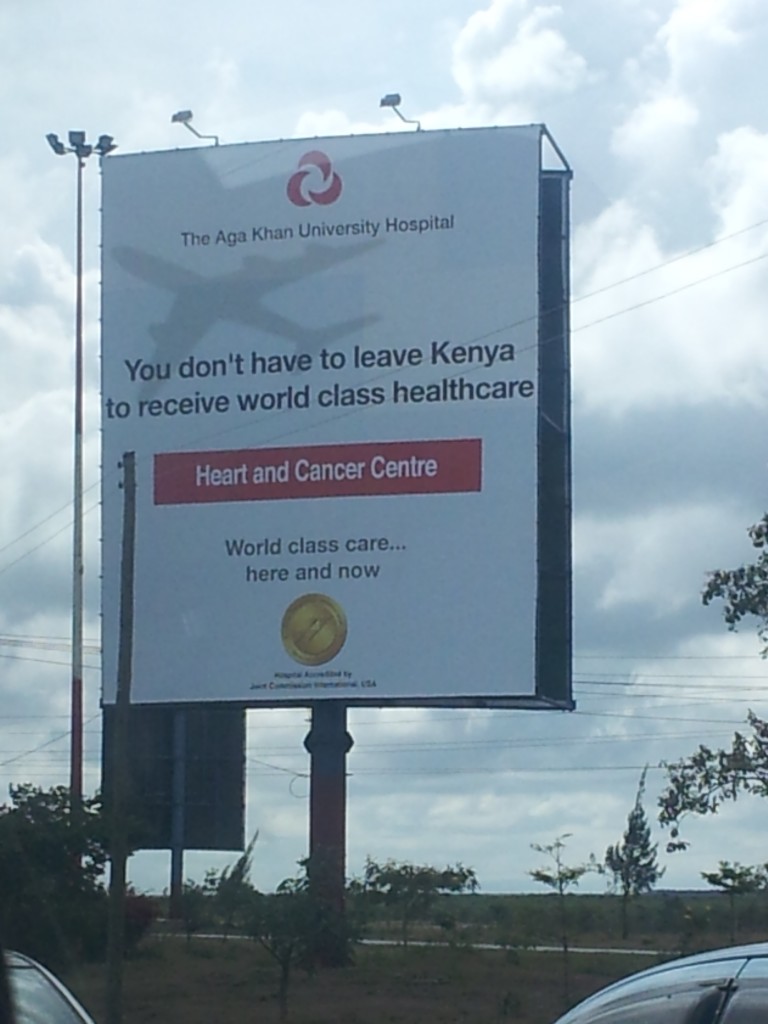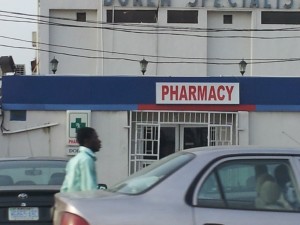
Healthcare in Africa has a long way to go. Rich and poor, we all want to have quality healthcare. However, not everyone has equal access to these services. While those Africans who can afford it travel abroad to get the treatments they need, others die because they can’t be diagnosed on time or receive the appropriate treatment.
While in Lagos, I learned about a pharmacist whose husband ended up with a warehouse in a not-so-good area of the city, and which didn’t serve its initial purpose. He suggested that she set a pharmacy there. She was hesitant as it was a poor neighborhood where no certified pharmacist operates. Would those people come as customers? They didn’t have acquisitive capacity and couldn’t afford to pay the extra money for a certified pharmacist… Still, she decided to go ahead and open her pharmacy.

People started coming, and the word spread that a certified pharmacist was in the area. Whatever little money they have, they save it to buy the drugs at this “proper pharmacy”: they know these are “the right drugs” that come with the assurance of a certified pharmacist, not from someone who doesn’t have the qualifications, and who delivers the not-so-good drugs which turn out less effective. People go to her pharmacy with whatever money they have, and say “this is as much as I can pay.” Jointly, they look for a solution to make it work out.
Fortunately, this pharmacist is not the only one bringing quality health-care to the poor:
- General Electric has developed a pocket-sized ultrasound tool that can make an important difference in diagnosis in countries with not so well developed healthcare systems. This innovation came from India, and they are now working with the Ghanaian Ministry of Health to introduce it across the country. Hopefully, other countries will follow soon.
- Through their Malaria Initiative, Novartis has provided 600 M malaria treatments to more than 60 countries and holds a research program working on the next generation of anti-malarial drugs. By the way, one of IESE’s MBA alumni led this effort in Kenya.
There are also many initiatives with this same purpose at a smaller scale. And I’m glad to share with you that the University of Navarra (to which IESE belongs) does its bit through its collaboration with Centre Hospitalier Monkole. Located in Kinshasa (Congo), Monkole’s mission is to offer quality Medicine for all in the middle of Africa. I guess you are familiar with some other similar initiatives: would you share them with us?
On a different note, this “out-of-the-oven” book by Prof. Franca Ovadje (Lagos Business School) looks promising “Change Leadership in Developing Countries”: it takes an African perspective and draws from case studies of African organizations.


I think any source and any mean spent in health in Africa is a great contribution to its development. Many NGO and different associations are contributing to health development in Africa. In Spain there are some ones who care about it. SED ONGD is one of them and has three main strategic objectives. Between them there is an important one focused on one slogan, Africa is the first, so they invest three in four parts of its means in international cooperation in this continent. They have two main priorities in Africa, schooling and education and second priority health. But not only NGOs are contributing. Many Governments in SSA are also contributing strongly to health development. After South African elections, Mr. Zuma’s government will continue facing the challenges of a long and healthy life for South Africans. Second-highest number of HIV/Aids patients in the world. Around one in seven of its citizens is infected with HIV and country will continue fighting against this illness with own manufacturing plants that will produce ingredients for antiretroviral medication. Meantime SED ONGD finally could bring after long time trying to dispatch,on May 7th, to Sakassou village in Ivory Coast an ambulance with a big pack of medical equipment.
Jose Pedro, thanks for sharing this information.
At times, I hear critical voices about the role of NGOs in African development: NGOs are well intentioned, but at times they substitute for local enterprises, and may even pose unfair competition to them. As a consequence — the argument goes — they may make African development more difficult, which is exactly the opposite of what they intend to do. For instance, I hear that sending used cloths to Africa has killed the local textile industry.
However, NGOs are playing an irreplaceable role in healthcare, an area unfortunately neglected in Africa by the private sector: many companies are not willing to invest in a geographical area where they can’t reap the high profits they do somewhere else.
I hadn’t heard of SED ONGD, so I looked for it, and I’m impressed at their reach.
My comment is not meant to dismiss NGOs or the people who contribute their time and money to them (in fact, I’m among them: I collaborate with FPSC). As a matter of fact, I believe the main beneficiaries are the contributors: it’s very healthy for us to reach out, and think of other people’s needs. Rather, my comment is just a call to think twice about where our efforts go: the point is to contribute to local capacity building instead of substituting for it. Educational activities fall clearly on this category, though not the only ones that do.
Africa, thank you for your explanations and comments. I understood you perfectly well.